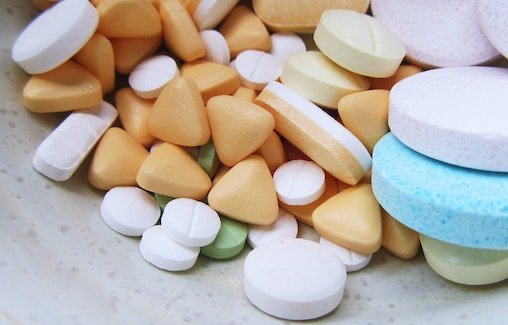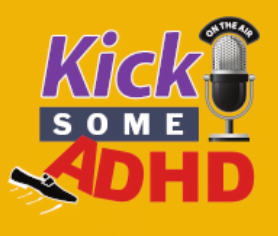
When people first try medication for their ADHD, they expect fireworks…or maybe the sudden absence of them. With some short-acting stimulants, this might be the case. You might get a jolt to the brain and then clear focus. But ADHD medication can be subtle. Especially extended-release versions and you may not get that 💥FOCUS💥. So it’s essential that you know if your medications are doing what you want them to do.
Last week, I shared how to know if the medication you’re taking for ADHD is helping you live easier with ADHD or not. I specified three areas that you might want to consider and then outlined questions to ask yourself to determine if the ADHD medication is making the impact you want.
Before we go any further, make sure you check out this blog to see if your medications are working and come on back if the answer is NO (or if your answer is ‘YES, but…’ and you are having negative side effects). I’ll wait…
…
…
Okay, you’ve decided you aren’t getting what you want out of those pills for ADHD you’re taking every day and we are now left with the question about what to do when your ADHD medication isn’t working.
Or maybe it’s helping, but you’re having negative side effects. NOTE: Medication is meant to help, not harm so if your current dose is impacting other areas of your body, keep on reading.
Here are some possible situations you may be encountering: Your Ritalin just doesn’t help you focus. Your Adderall doesn’t seem to do anything. Your Vyvanse takes forever to kick in and maybe even makes your stomach upset.
Steps to Take If Your ADHD Medication Isn’t Working
You take ADHD medication because you want to live easier with ADHD. Pure and simple. And if it isn’t, there might be other things in play. So the first steps to take:
- Take a close look at whether you’re helping your medication help your brain. ADHD medication cannot help in a vacuum. And it definitely can’t counteract things you’re doing to deter it. It’s important that you take action to provide a healthy space for it to do its job. So ask yourself, are you:
- Eating foods throughout the day that help your brain work better (protein, healthy carbs, veggies, and fruit) and avoiding foods that don’t (sugar, alcohol)?
- Getting enough sleep? Sleep is essential. ESSENTIAL. And yes, your medication may be keeping you up at night if you take it too late in the day so it can be a vicious cycle.
- Getting enough exercise? Exercise is hands down one of the best ways to manage your ADHD.
- Are you taking your ADHD medication consistently?
- Consider what, how much, and when you’re taking it.
- WHAT: Determine if you’re taking the medication that works best for you. Ritalin works better for some people than others and the same with Adderall. Some people do better on a long-acting medication, some do better on a short-acting. It depends on you and what you need. Don’t just try one type and give up. Yes, this may result in some trial and error and changing medication, but you may benefit from giving another one a chance. Talk to your doctor.
- HOW MUCH: It is normal for your brain to get used to the medication and need an increase in your dosage. If your Adderall worked at first and no longer does, that is often a sign you need a higher dose. This doesn’t mean you are becoming addicted. It’s a natural part of figuring out the right dose for you. Many doctors start low and slowly increase the dosage.
- WHEN: You may need to take the dose at a different time if it’s not helping you when you need it. Maybe put it right by your bed and take it as soon as you wake up. That way it starts to kick in before your shower and helps you get out the door on time. (Just make sure you eat breakfast relatively soon after you take it, especially if it’s impacting your stomach.) Or delay it a few hours if you need it more later in the afternoon. When is just as important as what or how much.
Once you know more, it’s time to talk to your prescriber and before you do:
- Gather specifics to share with your prescribing physician. Simply saying, “my Vyvanse isn’t working” isn’t enough information. More useful would be, “my Vyvanse seems to keep me awake at night” or “my Vyvanse doesn’t kick in right away and I still struggle to get out the door in time every darn morning”. The more specific you can be, the better your prescriber can know what the issue is – whether it’s the medication itself or how you are taking it – and how to help you resolve it.
- Give your ADHD medication a helping hand. Unfortunately, your dose is not a magic pill. It’s not going to make ALL your ADHD symptoms disappear. You may be able to focus better, but you’ll also need to learn new habits so you stop procrastinating and get things done.
I don’t think I can say this enough – ADHD medication is meant to help you live easier. And if it’s not, make sure you take the steps to find out why and take control!
Keep learning about ADHD:

 Tired of struggling with ADHD? You’re in the right place. ADHD Success is loaded with free, practical tips to help you get organized, manage your time, and live more easily with Adult ADHD. Like what you read? Sign up for the newsletter now! No Spam. I promise!
Tired of struggling with ADHD? You’re in the right place. ADHD Success is loaded with free, practical tips to help you get organized, manage your time, and live more easily with Adult ADHD. Like what you read? Sign up for the newsletter now! No Spam. I promise!
0 Comments